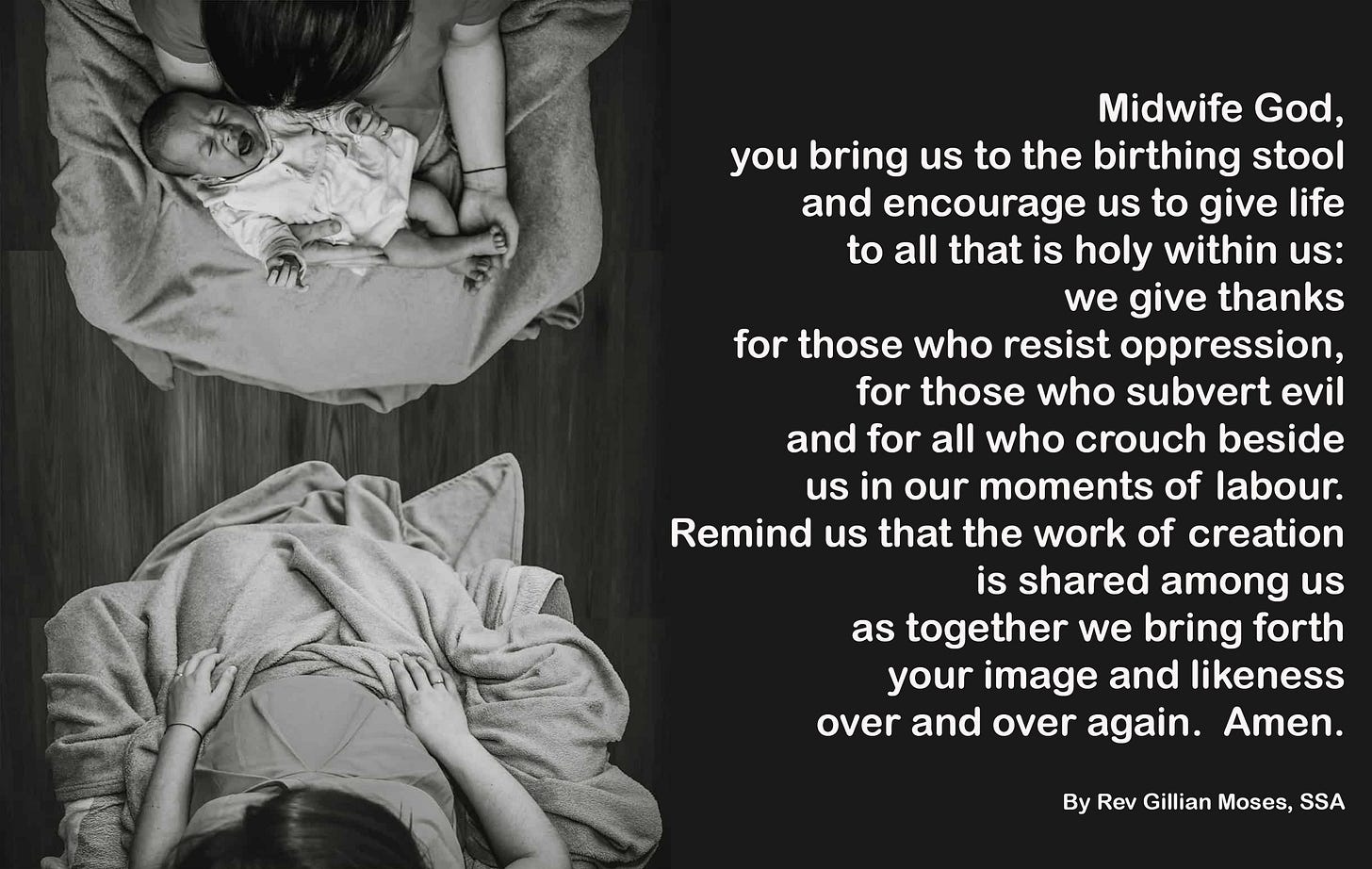Shifra and Puah are the names of the women who act as midwives to the Hebrew women in the Egypt of the Exodus. They are commanded by Pharoah to kill the male Hebrew children as they are being born, in order to reduce the number of Hebrew slaves in Egypt. Pharoah fears being overrun. He has done much to reduce their number: forcing them to labour to bring about his program of public works, feeding them on bare rations, and still they multiply. One day they will simply overwhelm the Egyptians unless he acts, so he acts. (Exodus 1)
The midwives in turn resist, claiming that the Hebrew women deliver so quickly and easily that the midwives don’t get there in time to fulfil Pharoah’s command:
I will tell Pharaoh how the Israelite women breed like spiders, giving birth too quickly to be caught. (From The Poem of Shifrah the Midwife, used with permission)
The ante is upped, and the women are ordered to throw the boy babies in the river to drown. But again the midwives subvert the imperial command, and Moses is rescued from the water, so that he in turn may lead all the Hebrew children to safety.
The story of the midwives offers us so much richness in the way it places women at the forefront of the resistance. As Kat Armas puts it, “Pharaoh thinks men pose a threat to his power, but he overlooks the real threat: God is using the women to set the scene for liberation.” Pharaoh’s own patriarchal lens prevents his from seeing that women have any power at all to ignore or subvert his command, and the women go along with him. Audre Lorde has famously argued that “the Master’s tools will never dismantle the Master’s house”, yet here the women give it a good go. They even join Pharaoh in othering the Hebrew women, calling them ‘animal-like’ (rather than the more polite translation of ‘vigorous’) in an ethnic slur echoed by the poem’s reference to spiders. It works, at least in the short term. Not only does Pharaoh fail to see the women as a threat, he decrees (twice!) that all the girl babies should be allowed to live. For what harm can they do? Unwittingly, Pharoah doubles the power of women, and they seize the opportunity.
For their faith and their resistance, the midwives are rewarded: “because the midwives respected God, God gave them households of their own” (Exod. 1:21). And while the language used by the midwives suggests they were Egyptian, this is not absolutely settled. Midrash states that Shifra and Puah go on to become God’s partners in creation, granting life to the Jewish children. (Shemot Rabba 1:19). Midrash goes on to suggest that the houses God gave Shifra and Puah were households, or dynasties that would be born through them. Shifra and Puah are said to be pseudonyms for Jochabed and Miriam, mother and sister of Moses. Through them a nation of priests and the House of David would be born.
The work of midwifery is life-giving and creative work, women’s work, divine work. We may all be presented with an opportunity to help new life come to birth as we resist oppression and destructive power. And if we are blessed, we find women who will crouch beside us, nurturing and protecting us as we labour. Through us, as mothers and midwives, dynasties of hope and justice are born.
So let’s pray:
Midwife God, you bring us to the birthing stool and encourage us to give life to all that is holy within us: we give thanks for those who resist oppression, for those who subvert evil and for all who crouch beside us in our moments of labour. Remind us that the work of creation is shared among us as together we bring forth your image and likeness over and over again. Amen.
With Love from Rev Margaret
Find a reflection on Miriam here.
The Rev’d Gillian Moses, SSA: I am currently chaplain at St Aidan’s Anglican Girls’ School and co-leader of the Society of the Sacred Advent. A long-time feminist, I am interested in the empowerment of young women through education, and role of public theology in the community that is an Anglican School. With the SSA I treasure women’s spirituality and community and the forms of worship this generates.




